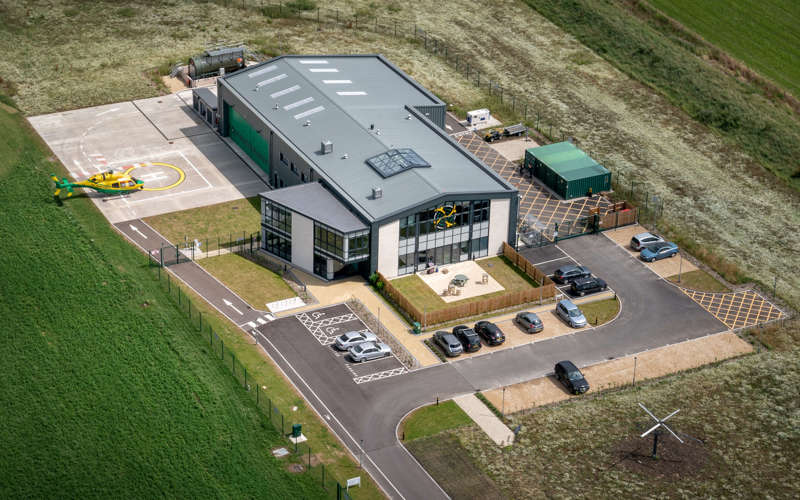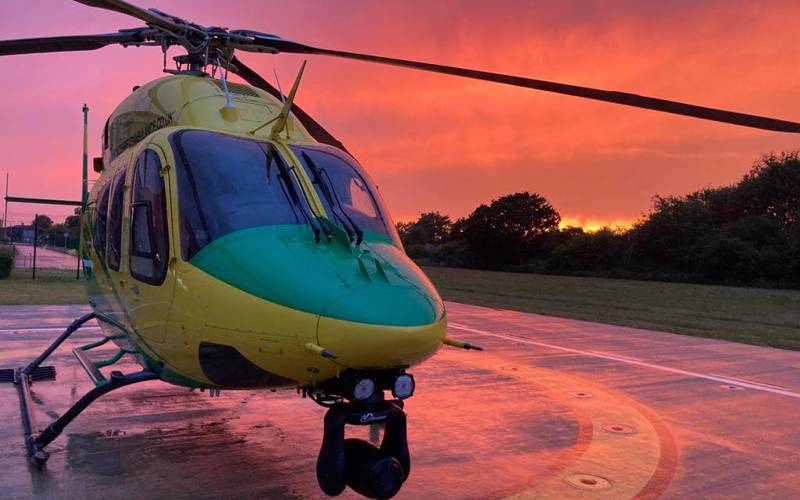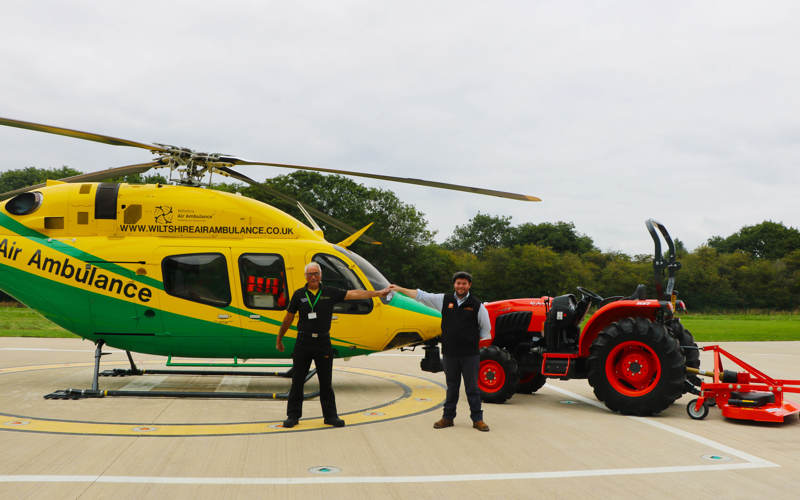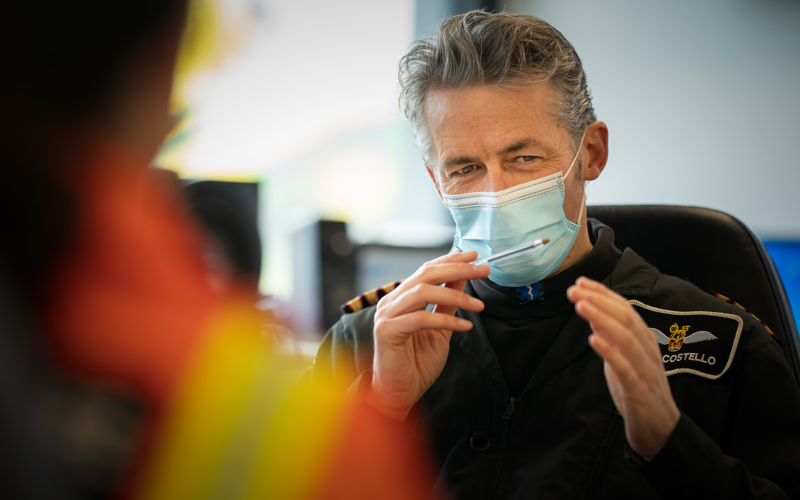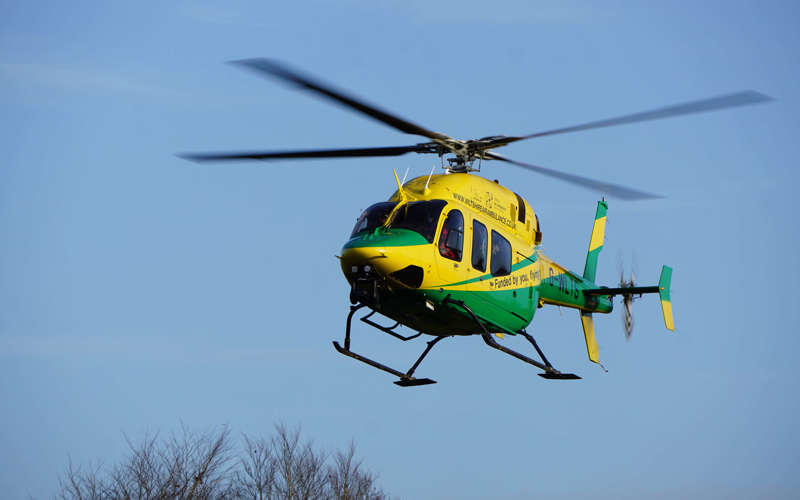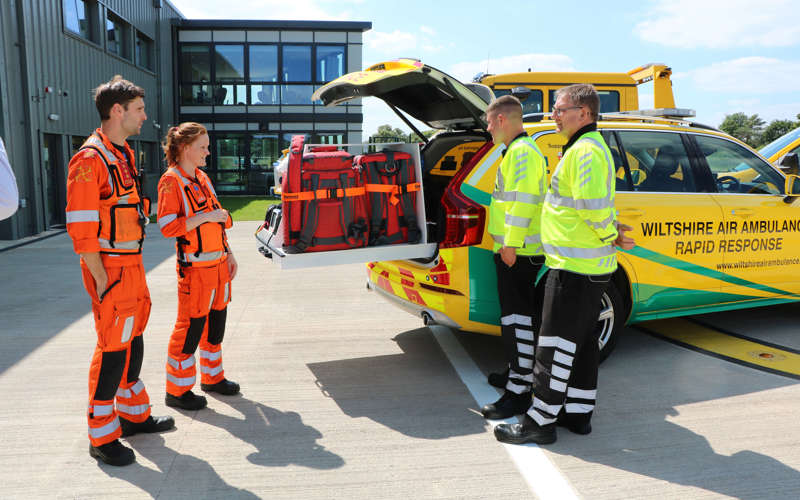Social responsibility in gambling
Wiltshire Air Ambulance Charitable Trust operates a lottery to help raise funds to support its lifesaving service.
The charity is committed to ensuring that each lottery is operated in a secure, fair and socially responsible way and to endorsing responsible gambling amongst its members.
The Gambling Commission regulates gambling in the public interest. The regulatory framework introduced by the Gambling Act 2005 is based on three licensing objectives:
1. Preventing gambling from being a source of crime and disorder, being associated with crime and disorder, or being used to support crime.
2. Ensuring that gambling is conducted in a fair and open way.
3. Protecting children and other vulnerable persons from being harmed or exploited by gambling.
This document sets out the charity’s policies and approach to ensuring we approach any gambling activities in a socially responsible way.
1. Preventing gambling from being a source of crime and disorder
When an individual joins the lottery we will check that:
• The individual is aged 16 or over.
• The individual is resident in the UK.
• We retain the right to terminate any player’s participation in a lottery that we promote should we suspect criminal activity.
• We do not accept cash
• We limit the maximum number of entries to £20 per person per week.
• All lottery related computers and software are password protected and accessible only by authorised members of staff
• Adopt a strict and thorough reporting procedure if a member of staff and/or another operator is found to be in any way operating in an illegal or suspicious manner
2. Ensuring that gambling is conducted in a fair and open way.
We will ensure that:
• Players have access to clear information on matters such as the rules of the lottery, the prizes that are available and the chances of winning.
• The rules are fair.
• Any advertising and promotional material is clear and not misleading.
• The results are made public.
• We utilise tried and tested lottery software to administer our lotteries with an RNG in line with Gambling Commission regulations.
3. Protecting children and other vulnerable persons from being harmed or exploited by gambling.
We will use our best endeavours to address the following issues:
3.1 Age Verification Policy
• It is an offence for persons under the age of 16 to play the lottery.
• Systems will not allow the person to be entered on the lottery if they are under 16.
• Staff are trained to be aware of their responsibilities for preventing underage gambling and for returning stakes and not paying prizes to underage customers. Where lottery tickets are sold face to face, if it appears that the potential customer might be underage, our staff ask for proof of identity, establishing that the person is aged 16 and over before selling the lottery ticket to them. In the case of customers who apply for lottery tickets by post, we carry out random checks to ensure compliance with age restrictions
• Examples of acceptable identification for age verification purposes include; Passport Driving Licence Official Student Card
3.2 Protecting vulnerable persons.
• Staff are trained to detect vulnerability in potential customers and politely decline offers of support from such individuals. People particularly at risk include the elderly, mentally disabled and those under the influence of drugs or alcohol.
3.3 Gambling Limits
• The Charity imposes limits on the value of entries into a lottery that can be purchased by an individual to £20 per week.
• If our staff have a concern that a customer’s behaviour (signified for example by a sharp increase in their expenditure on lottery tickets or chances) may indicate problem gambling, they will be trained to report the matter to the responsible person, David Philpott, who will telephone the customer to discuss the matter, including the help that is available for problem gamblers. In severe cases, consideration may be given to barring the customer from participating in the lottery.
3.4 Self Exclusion
• The Charity has procedures in place allowing an individual to self-exclude for a length of time – usually between the minimum of six months and a maximum of twelve months and will take all reasonable steps to refuse service or to otherwise prevent an individual who has entered a self-exclusion agreement from participating in gambling. A customer who has made contact to request selfexclusion will be refused service and prevented from gambling with the Charity. A request for self-exclusion will be available with immediate effect and with no “cooling off” period.
• During this period we will take all reasonable steps to ensure that the individual does not try and play any lotteries promoted by the charity and to prevent any marketing material being sent to them. We will remove name and details of a self-excluded person from any marketing databases and otherwise flag them as an individual to whom marketing material must not be sent within two days of having received the completed self-exclusion notification.
• The self-exclusion request will be entered onto the lottery software system and will block any further requests to partake in gambling by using the following fields of data; surname, first names, address, postcode, telephone number and email.
• An individual when requesting self-exclusion will be informed as to what selfexclusion is and will be provided information on gambling support agencies. The main being: www.gamcare.org.uk or telephone 0845 6000133 www.gambleaware.org.uk Requests for self-exclusion may be accepted in writing to: Wiltshire Air Ambulance Charitable Trust, Outmarsh, Semington, Wiltshire BA14 6JX Or via email at hello@wiltshireambulance.co.uk or via telephone on 01225 300536
• The individual’s lottery account will be closed. Any balances outstanding on that account will be refunded. Where an individual has paid by cheque, the amount from the last draw they were entered into, to the end date of their subscription will be refunded by cheque within 10 working days. Where an individual pays by Standing Order, they will have to contact their bank directly to cancel the Standing Order and we will refund them by cheque each month until such time as the Standing Order has been cancelled.
• During the period of self-exclusion, they will in no way be entered into any Charity draw, even if the individual has failed to cancel their Standing Order.
• After the self-exclusion period ends, if the individual wishes to recommence participating in one of the lotteries promoted by us, he she must request in writing that they wish to be removed from the self-exclusion register. Once we receive this letter the individual will be given one day to cool off before being given the opportunity to recommence participation in the lottery.
• The individual must be the one to take positive action to gamble again and no contact will be made by the Charity until contact has been made by that individual.
3.5 Preventing Problem Gambling
The Charity makes an annual financial contribution to the Responsible Gambling Trust (RGT) as a member of the Lotteries Council.
4. Protection of customer funds
• All customer funds intended for the use in future gambling and or lottery subscriptions will be held in a separate bank account or accounts relating to the relevant affiliated charity lottery and will be completely separate from the society’s trading income.
• We are required by our licence to inform customers about what happens to funds which we hold on account for you, and the extent to which funds are protected in the event of insolvency. See www.gamblingcommission.gov.uk/consumers/protectionof-customer-funds.aspx for more. We hold customer funds separate from WAACT funds. This means that steps have been taken to protect customer funds but that there is no absolute guarantee that all funds will be repaid. This meets the Gambling Commission’s requirements for the segregation of customer funds at the level: medium protection.
• The licensee operates a strict no ‘cash policy’ to prevent the risk of crimes such as money laundering, to avoid the giving of illicit credit and to provide assurances that gambling activities are being conducted fairly.
Please contact Wiltshire Air Ambulance Charitable Trust, Outmarsh, Semington, Wiltshire BA14 6JX for a copy of the Cash handling and money laundering procedures or click here.
SOCIAL RESPONSIBILITY IN GAMBLING – ENSURING MARKETING COMPLIANCE
All advertising and marketing material must comply with the Gambling Act 2005, and all other subsequent statutory orders and amendments. This procedure applies to all printed marketing material, and all ‘virtual’ electronic media content, including internet websites, social media content and mobile telephone application content.
All marketing material, irrespective of the nature of the media, must contain the following;
• The name of the promoting society (Wiltshire Air Ambulance Charitable Trust (WAACT)
• The price of the ticket for the relevant lottery
• The name and address of the WAACT responsible for the promotion of the lottery.
• The date of the relevant draw.
• The fact that the WAACT is “Licensed by the Gambling Commission.”
• The Gambling Commission website www.gamblingcommission.gov.uk
In the case of electronic media, it must be possible for the purchaser of the ticket to retain or print a document that contains all of the above.
All advertisements must also comply with BCAP and CAP advertising guidelines, and these guidelines should be consulted before proceeding with any advertising material.
No young person who is, or appears to be, under 25 years of age should be used in any advertising material, unless that material exclusively features the good cause benefits and does not include any explicit encouragement to buy a lottery product.
No digital advertisements must appear on websites that provided unauthorised access to digital content, and any lottery-related adverts must not be placed with or by third-parties where editorial control of content cannot be guaranteed.
PROMOTION OF THE LOTTERY BY WEBSITE/SOCIAL MEDIA
As it is an offence to sell tickets to under 16s, WAACT must ensure that sale of remote chances does not inadvertently target or recruit lottery players using this media.
PRIZES THAT SPECIFICALLY TARGET YOUNGER PEOPLE UNDER 25 YEARS OF AGE SUCH AS VIDEO GAMES, THEME PARK TICKETS OR CERTAIN MUSIC CONCERTS MUST NOT BE OFFERED AS INCENTIVES OR PRIZES.
In addition, it is vital that the customer must have access to relevant information, on each individual webpage, e-mail, or other electronic communication.
In the case of a social media ‘post’ or ‘tweet’, where space may be limited, the first landing page linked to the post/tweet must contain all six mandatory pieces of information. It is also further advisable in the interests of transparency that this information appears on all subsequent lottery related web pages.
Any pages involving direct sign-up, or requests for further information, MUST contain full lottery and promoting society details.
This stipulation applies to the website of the Wiltshire Air Ambulance.. However, all content must be agreed by the person legally responsible for Marketing and Commercial Development, before publication.
It must be explicitly clear that the lotteries are promoted by the Wiltshire Air Ambulance Charitable Trust.
Wiltshire Air Ambulance Charitable Trust
Outmarsh
Semington
Wiltshire
BA14 6JX.
Telephone: 01225 30036.
Website: https://www.wiltshireairambulance.co.uk
Wiltshire Air Ambulance is licensed and regulated in Great Britain by the Gambling Commission under account number 41103.
Reviewed & Revised – April 2018
